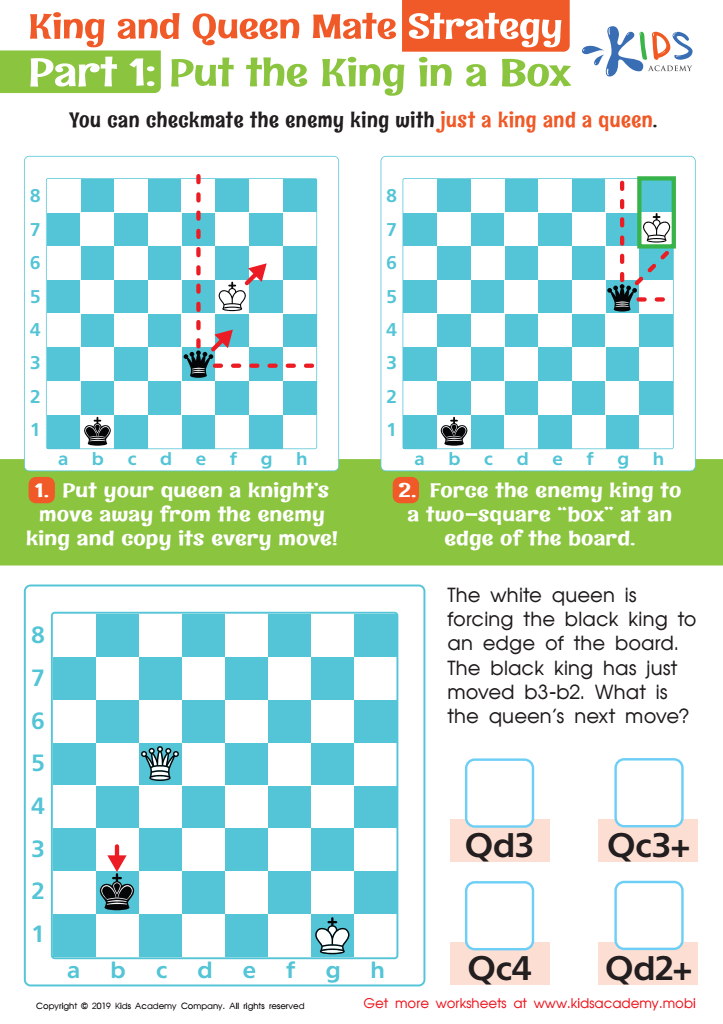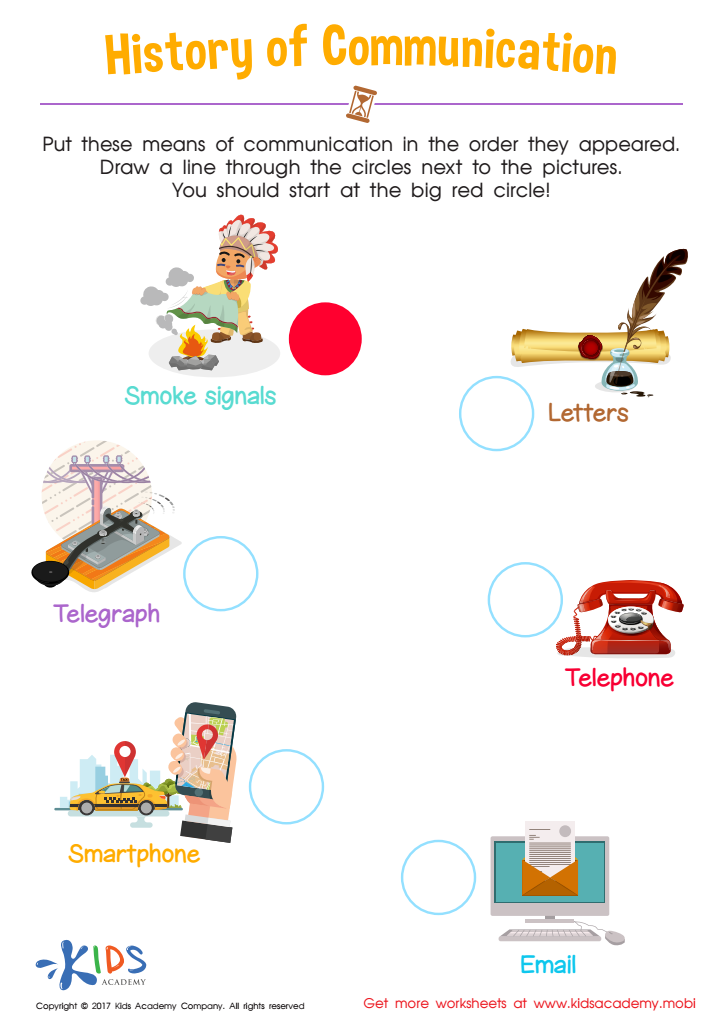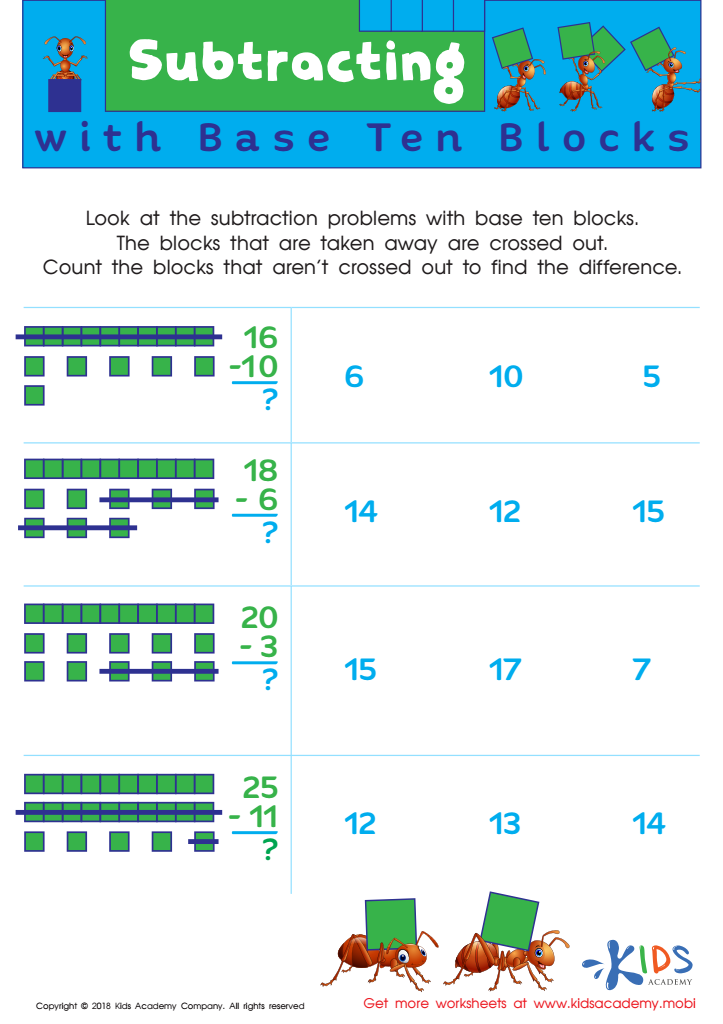Enhancing critical thinking Extra Challenge Worksheets for Ages 6-7
3 filtered results
-
From - To
"Enhancing Critical Thinking Extra Challenge Worksheets for Ages 6-7" are designed to stimulate young minds and sharpen their problem-solving abilities. These engaging resources provide fun, age-appropriate challenges to help children analyze situations, make decisions, and think logically. Each worksheet promotes cognitive development through activities that push boundaries, encourage curiosity, and foster independence. With a variety of puzzles, logic games, and thought-provoking questions, these worksheets offer an exciting way for kids to strengthen their critical thinking skills while enjoying the process of learning. Ideal for classroom use or at-home enrichment, give your child a head start on their academic journey!


King and Queen Mate Strategy: Part 1 Worksheet


History of Communication Worksheet


Subtracting with Base Blocks Worksheet
Enhancing critical thinking in children aged 6-7 is crucial for their cognitive development and future success. At this age, young minds are highly receptive and moldable, making it an ideal time to introduce foundational critical thinking skills. This type of cognitive engagement enables kids to analyze situations, recognize patterns, and make reasoned decisions rather than simply memorizing information. For parents and teachers, nurturing these skills helps children become more autonomous thinkers and effective problem-solvers.
Developing critical thinking at an early age also encourages curiosity and a love of learning. When children critically assess information and ask questions, they become more engaged and enthusiastic learners. This is vital for lifelong academic journey and fosters resilience in facing challenges.
Moreover, early enhancement of these skills builds stronger communication abilities. By learning to articulate their thoughts and reason through explanations, children improve both their oral and written communication skills.
From a social perspective, critical thinking equips children with empathy and perspective-taking by teaching them to consider multiple viewpoints. This lays the groundwork for respectful and productive social interactions as they grow older.
In sum, prioritizing critical thinking in young learners helps create well-rounded individuals who are prepared for the complex world they will inhabit. This makes a compelling case for parents and teachers to actively foster these skills.

 Assign to My Students
Assign to My Students




















